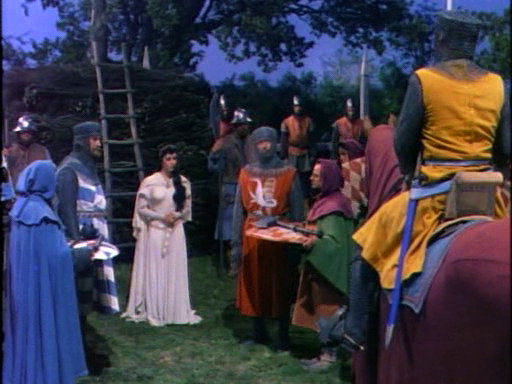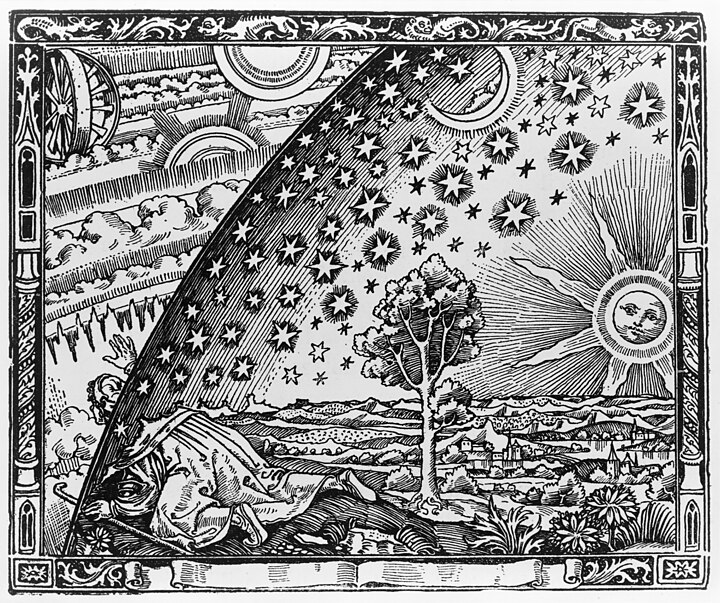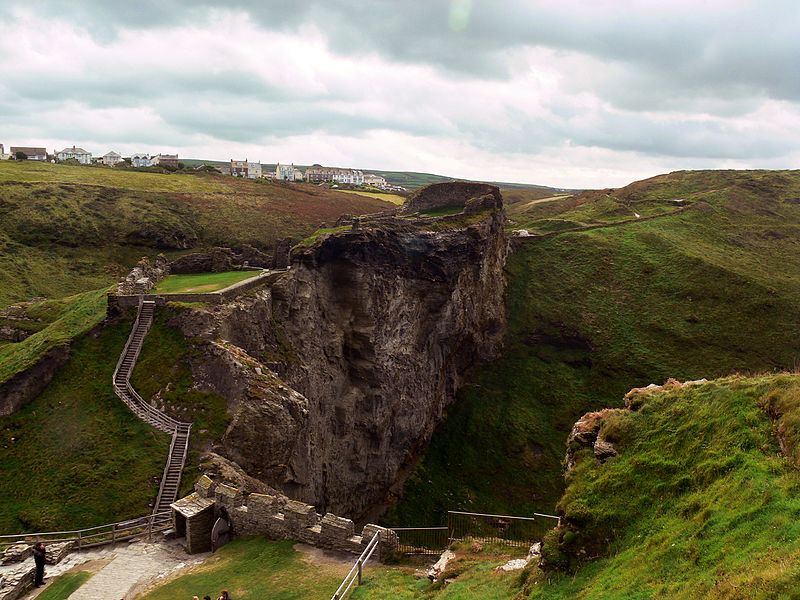We have seen that Tyrion has asked for trial by combat two times. How realistic is it? Was it a common practice during medieval times? Is it inspired from any medieval time custom? It does not look logical if someone like the Mountain, Barristan or Oberyn Martell can do any crime and can easily ask for trial by combat.
-
16Curious... have you done any research at all into the concept of "trial by combat"? As far as I know it's a very common concept.– CatijaAug 11, 2015 at 17:06
-
3According to the Wikipedia it was used "in the event of two families disputing the boundary between their lands", so might have been a way to limit violence: two people fighting, instead of two whole families. Later it might have been regarded like a trial by ordeal: God would have helped the innocent.– Thomas WeinbrennerAug 11, 2015 at 17:37
-
3"can do any crime and can easily ask for trial by combat" - no, not any crime. Only serious crime like murder, rape, treason, etc., and only if there is absolutely no evidence and no other witnesses, only an accusation.– vszAug 12, 2015 at 4:42
-
1While it sounds very unfair the principal behind it was something called "judicium dei". Medieval people were very superstitious/religious and believed God decided the outcome of battles. Therefore in trial by combat they believed that God would only allow a fair outcome. bartleby.com/81/9342.html– Brice M. DempseyAug 12, 2015 at 9:01
-
2Interesting related article: nerdbastards.com/2015/08/10/…– Francisco V.Aug 12, 2015 at 15:09
5 Answers
The other answers are quite good and on-the-mark, but I want to bring the spotlight on a specific point:
Yes, trial-by-combat existed in our world. But was not a case of "might makes right". If your guilt could be proven, you could not claim trial-by-combat: This was reserved for cases with a severe accusation, but no proof whatsoever.
So what are we looking at, here?
What was the purpose of real-world trial by combat?
The accuser says the accused is a murderer, rapist, traitor. A person dangerous to others, who needs to be stopped from doing further damage. But he has no proof. By taking his accusation to court, and winning in trial-by-combat, he might be able to take the accused down, removing the danger / getting vengeance. Without hard evidence, that's probably the best the accuser can hope for.
The accused, in turn, cannot prove his innocence either -- his reputation is severly damaged by the accusation. Demanding trial by combat is basically a counter-claim of libel and slander. The accused can "prove" his innocence, and (hopefully) strike down the person who slandered him. By the right to demand the accuser-without-proof facing you in combat, the probability of libelious accusations is reduced.
In either case, by putting the case to court and going through the proper proceedings of trial by combat, instead of just getting in a shouting match, then draw swords and go for it, the victorious party ensures that it will not be accused of assault by supporters of the opposing party afterwards.
The ability to nominate a champion is, again, the very opposite of "might makes right". The idea is that those who were not fit to fight -- due to age, disablity etc. -- would be "protected" from wrongful accusations, e.g. from someone who wants to use trial-by-combat to get rid of a rival. I am not sure if a person who would be capable of fighting for himself would actually be allowed to nominate a champion. (But then, a person of enough power would probably just have the champion make the accusations in his stead. I didn't claim it's a perfect system.)
So, all in all, trial-by-combat is not even that bad an idea, given the limitations of the judical system of the time. It's certainly not a "get out of jail free" card for someone like the Mountain if there's evidence against him.
It's not only inspired, but almost identical to a Western European medieval custom.
Trial by combat (also wager of battle, trial by battle or judicial duel) was a method of Germanic law to settle accusations in the absence of witnesses or a confession in which two parties in dispute fought in single combat; the winner of the fight was proclaimed to be right. In essence, it was a judicially sanctioned duel. It remained in use throughout the European Middle Ages, gradually disappearing in the course of the 16th century.
Unlike trial by ordeal in general, which is known to many cultures worldwide, the trial by combat is known primarily from the customs of the Germanic peoples. It was in use among the ancient Burgundians, Ripuarian Franks, Alamans, Lombards, and Swedes.
The custom had its roots in German tribal law, but it was also included in various legal codes at the time. What is important in regard to your question is that many of these codes strictly defined when a trial by combat could take place.
For example in modern-day Germany:
Hans Talhoffer in his 1459 Thott codex names seven offences that in the absence of witnesses were considered grave enough to warrant a judicial duel, viz. murder, treason, heresy, desertion of one's lord, "imprisonment" (possibly in the sense of abduction), perjury/fraud and rape.
and in Great Britain:
The wager of battle was not always available to the defendant in an appeal of murder. If the defendant were taken in the mainour (that is, in the act of committing his crime), if he attempted to escape from prison, or if there was such strong evidence of guilt that there could be no effective denial, the defendant could not challenge. Similarly, if the plaintiff was a woman, above 60 years of age, a minor, or if he were lame or blind, he could decline the challenge, and the case would be determined by a jury. Peers of the realm, priests, and citizens of the City of London (the last pursuant to their guarantee of ancient liberties under Magna Carta) could also decline the battle if challenged.
This is probably the main difference with the GoT world as apparently in Westeros a trial by combat can always be demanded. This indeed seems to be less realistic, but obviously strongly increases dramaturgy.
-
4Only abolished in England and Wales in 1819, though there hadn't been a trial by battle for some centuries. The trigger to abolish being Abraham Thornton claiming trial by battle in a murder case. Battle was originally supposed to be reserved for Normans, but it became hard to distinguish Normans from Saxons. It rather fell out of favour as being dangerous and uncertain, though easier to win if you were wealthy because you could afford a better champion. Aug 11, 2015 at 21:31
-
Very good answer, just one nitpick: The custom is not rooted in common law. It was introduced in England only after the Normans conquered (who brought the custom with them).– DevSolarAug 12, 2015 at 6:55
-
@DevSolar You're right in case of England, but in general it's being rooted in Germanic tribal law (at least according to Wikipedia). Aug 12, 2015 at 7:30
-
@Tautologist: ...which is pretty exactly what Common Law is not, isn't it?– DevSolarAug 12, 2015 at 7:37
-
@DevSolar Right, I incorrectly assumed they are the same thing. Answer edited. Thanks for pointing it out. Aug 12, 2015 at 7:53
Other, older movies and stories.

Ivanhoe (1952)
Our depiction of the medieval era is skewed, beginning with the names we use for it (medieval era or dark ages). In the great heyday of history in the late 19th and early 20th century a lot of the research wasn't very accurate, and not only by today's standards. A lot of wrong reconstructions were made, and exaggerations and basically adventure books filled whole libraries.

This picture is from 1888. People didn't want to finance Columbus' travels not because they feared that they would fall of the brim of the world. They knew that his circumference calculations were incorrect.
When something looks like a real nice knight's castle...

...it probably was built in the late 19th century, 1867 in this case. The real things were not as impressive.
This isn't a new development. The Arturian sagas were exaggerated romantic knight tales from the beginning. They were a novelist hype throughout Europe... in the 12 century. People at that time criticised them for presenting a romantic past that never existed. Tintagel castle was built in the 13th century...

...probably as a themed villa for a fan of the stories. It wasn't suitable as a fortress and is located in a quite absurd location.
Game of Thrones (and the books even more so!) present us a fantasy medieval setting that satisfies our expectations. It is very successful in this, and real fun. But it is full of anachronisms, exaggerations, and repetitions of older misrepresentations would it be applied to our history (which is invalid as it is fantasy).
Of course the misrepresentations have a true core, as @Tautologist already mentioned. But please read the source that he linked to. Most of the time trial by combat wasn't just not common, it was even forbidden or only used in very specific circumstances. Depicting it as a "right" that anyone can demand in any trail is as wrong as e.g. depictions of the droit de seigneur. The medieval era was not a time of dirt, injustice, arbitrariness, and raw violence. Solving issues by sword was not common - and certainly no one could commit crime and fight himself out of it. Of course Game of Thrones basically takes place in a setting off high houses where wounded pride and slights are reason enough for centuries of war and fighting between the houses. In this setting of imaginary honour and false pride, of patrilinear family lines of thousands (!) of years, it doesn't seem too unlikely that this instrument could have much more importance than it had in reality.
-
I never thought that Game of Thrones would have a medieval setting. The title alone, "Game of Thrones", always sounded to me like a pure Fantasy thing (keeping me off giving it a try), and all the hype looks to me as Porn for the Prude. Is it really a medieval story?– phresnelAug 13, 2015 at 8:53
-
3@phresnel You omitted "fantasy" from "fantasy medieval setting" ;-). The setting is so close to the European medieval times that most people recognize it and understand its mechanics at once (so "sir" is "ser" now). At the same time it is a fantasy setting with absurd time spans and stasis of thousands of years (the original medieval was one thousand years altogether, and those were very diverse), dragons, large scale anachronisms, zombies, seasons of several years... the title on the other hand sounds realistic to me, it would be a good name for a show about the war of the roses.– hisAug 13, 2015 at 15:24
While it all sounds very unfair the principal behind it was something called judicium dei. Medieval people were very superstitious/religious and believed God decided the outcome of battles. This meant that when someone won a battle, they hadn't just seized physical control, but proved that God agreed with their goals.
They used this belief as a way to 'ask God's opinion' when there was no other way to settle the matter. In trial by combat they believed that God would only allow a fair outcome and would protect the innocent even if it meant performing a miracle. This is the same principal behind trial by ordeal, in which an accused person would have to do something dangerous or painful and God would protect them from harm if they were innocent.
The accused would often hold these beliefs as well and so people who knew they were guilty would simply refuse the challenge rather than risk death and injury without the protection of God.
-
2People in medieval times weren't that superstitious, that again is a myth made up during the enlightenment to look better in contrast. The medieval times were very diverse in this regard; we are talking about around one thousand years and a whole continent. But all those religious weirdos were mostly of an later era (early modern times) - in fact during a time when people actually could afford to act that way. In the time before religion, especially Christian, was used as an instrument of power and suppression so the ruling class derived their status from a "divine" will.– hisAug 12, 2015 at 9:55
-
@his: While people in medieval times may not be superstitious the belief in existence of god/gods was universal. Yes, it was an instrument of the ruling class to control the masses but it wouldn't be an instrument if the masses didn't believe in it. Aug 12, 2015 at 22:12
-
@slebetman It wasn't more intense than in any other time in history, including today. Religion alone is not enough, you need physical power too - but then religion makes a nice excuse and story, no matter whether a single person believes it. Most of the religious atrocities and extremes (witch burning, inquistion etc) happened in early modern times, long after the medieval era.– hisAug 12, 2015 at 23:19
-
@his: I'd argue that it was technically more intense given that atheism as we know it today didn't exist. Historically, even people who didn't believe in religion believed in god/gods. Aug 13, 2015 at 0:12
-
@slebetman No, not in the medieval times in Europe. For most of the time and most of the people religion was just social glue. You hadn't a choice, there was no freedom of religion in both senses (no religion or choice of religion) but people were explicitly not overly religious or faithful for most of the time and most of the regions.– hisAug 13, 2015 at 15:29
Like the other answers said, there are actual historical versions of trial by combat and trial by combat could indeed limit bloodshed when the alternative was a blood feud or pitched battle.
It does not look logical if someone like the Mountain, Barristan or Oberyn Martell can do any crime and can easily ask for trial by combat.
Modern justice systems favor the rich and the smart/eloquent, trial by combat favored the strong/well-trained. One isn't inherently more fair than the other in that regard. Of course over time trial by combat came to be seen more as trial by ordeal and then people were allowed to use champions (similar to what happened on Game of Thrones) so that rich people who weren't strong or well-trained could still obtain an advantage.
-
2Completely fails to point out that trial by combat was only allowed in the total absence of evidence either way -- which is making the critical difference between "functional judical proceeding" and "barbaric way to ensure the strongest gets his will". Compare the answer by @his.– DevSolarAug 12, 2015 at 8:45
-
Trial by combat only being allowed if there was no evidence, or at least no "strong" evidence, was a rule in England in the high middle ages. This rule was certainly not present in all cultures that practiced trial by combat, such as the Vikings, at least not to my knowledge.– user23866Aug 12, 2015 at 11:15
-
1@user23866 You seem to be the same user as this guy. Please register one of your accounts and merge it with the other one using the procedure described here. Then you will be able to comment on your previous answer or edit it instead of posting additonal partial answers. You might also want to take a look at the tour and the help center to get a better grip of how this site works.– Napoleon Wilson ♦Aug 12, 2015 at 11:19
-
@user23866: I'd like to see any sources for trial by combat being allowed despite existing evidence. This is not the knee-jerk "sources!" cry of the Wikipedian, it's the "I've never heard of that, but would certainly welcome a widening of my horizons" honest plea for information.– DevSolarAug 12, 2015 at 14:29
-
@DevSolar I just post occasionally so no need for an account. I have simply never come across a source that mentions the "no evidence" requirement, except for sources on medieval England. This site describes Viking and other Germanic duels and lists a lot of books as sources. It regularly mentions these duels as being allowed for as little as a personal insult, these duels being used as an equalizer by men who had no money or witnesses for a court trial and even in later times the duels being abused by professional fighters (hired or not) to "r– user23987Aug 16, 2015 at 11:23
